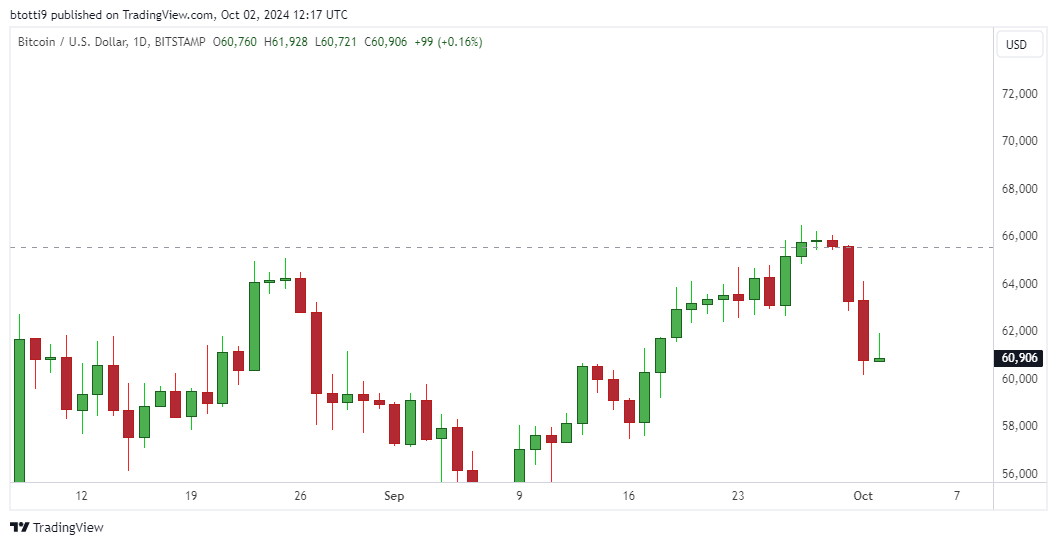- Bitcoin ETFs recorded outflows of $243 millin as markets fell amid Iran’s missile attack on Israel.
- BTC price also fell, hitting lows of $60,300 before recovering to above $61k.
Bitcoin exchange-traded funds recorded net outflows for the first time in two weeks, with $243 million exiting on October 2, 2024.
The outflows followed a sharp decline for Bitcoin (BTC) price on Tuesday as geopolitical tensions in the Middle East threatened to escalate further with Iran’s attack on Israel. With institutional investors largely concerned as the Middle East teeters, spot Bitcoin ETFs hit outflows for the first time since Sept.18.
Bitcoin ETFs break inflows streak
Outflows on Oct. 1 meant the US spot BTC ETFs market broke an eight day streak of net inflows. It also saw the Bitcoin ETFs record the largest outflows since more than $287 million exited the market on Sept. 3. That outflows streak also hit eight consecutive days.
Apart from BlackRock’s IBIT, which recorded inflows of over $40.8 million, all other ETFs either saw outflows or zero net flows.
Fidelity’s FBTC led with over $144.7 million in negative flows, while Ark 21Shares’ ARKB saw more than $84.3 million offloaded. Meanwhile, there were zero net flows for Grayscale’s Mini Bitcoin Trust as well as Franklin, Invesco, Valkyrie, WisdomTree ETFs.
BTC price retreated to $60.3k
Amid these movements, BTC price slumped more than 4%, with losses pushing it to lows of $60,300 across major crypto exchanges. From highs above $64k, it meant bulls gave up almost $4k before finding support.
This was the sharpest price dip for Bitcoin since Sept. 6, when BTC fell from above $56,170 to near $52,500.

As BTC price fell, a major whale dumped over $46 million in BTC on Binance. This particular whale, according to Spot On Chain, had accumulated 3,933 BTC worth more than $234 million between August 29 and September 15, 2024.
Despite the sizable sale, the BTC whale still hodls 9,736 bitcoins worth over $601 million.
Bitcoin has traded to above $61k.
The post Spot Bitcoin ETFs record $243 million in outflows as BTC dumps appeared first on CoinJournal.
